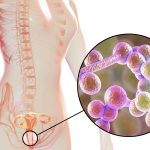Endocannabinoids & Autoimmunity
JAKE F. FELICE, ND, LMP
Autoimmune conditions and diseases of the nervous system are typically chronic, often have an early age of onset, and frequently cause significant pain, debility, and suffering. Autoimmunity is an arena of medicine that remains largely misunderstood, given that the immune system and immune regulation are still relatively new areas of medicine, since the late 20th century. The mainstay of conventional therapy for autoimmune diseases is immunosuppressive glucocorticoids despite their well-known adverse long-term effects.
CB2 Receptors & Immunity
Plant cannabinoids provide potential benefits for autoimmunity via 3 major avenues: modulation of the immune system, reduction of general inflammation, and digestive system support. Cannabinoid therapies may also treat symptomatic aspects of autoimmune diseases, including pain and muscle spasms. Other modes of influence on immune activity by the ECS include effects on cytokine information networks, induction of apoptosis by immune cells, and downregulation of adaptive and innate immune responses.
The ECS consists of cannabinoid (CB) receptors CB1 and CB2, endogenous ligands such as the endocannabinoids anandamide (AEA) and 2-arachidonoylglycerol (2-AG) and their transport mechanisms, and endocannabinoid-metabolizing enzymes. CB1 receptors are expressed mainly in neural tissue, while CB2 receptors are expressed largely in immune cells and are the main focus of this paper. In addition to CB1 and CB2 receptors, endocannabinoids modulate several other pathways and receptors, including TRPV1, GPR-55, and others.1-4
The wide distribution of cannabinoid receptors-2 (CB2) on immune cells makes the endocannabinoid system (ECS) – a highly complex interconnected web of biochemical pathways – a natural candidate for the exploration of new treatment options for autoimmune disease. By affecting a plethora of receptors and biologic networks,2 cannabinoids including CBD expand their influence far beyond “classical” pharmacologic pathways. Current evidence indicates that phytocannabinoids modulate immune activity in a way that balances both overactive and underactive immune responses. They have been shown to act upon B-cells, T-cells, monocytes, and other immune cells, creating an environment that reduces inflammatory cytokines and increases anti-inflammatory cytokines.1 Interestingly, one of the ways that CBD affects the ECS is through via inhibitory actions on the endocannabinoid-degrading enzyme, fatty acid amide hydrolase (FAAH).2 Targeting the inactivation of FAAH may be a useful and non-toxic way to modulate the body’s concentrations of cannabinoids and reduce inflammation in autoimmune conditions.5
Besides plant cannabinoids, the role of terpenes in cannabis deserves mention. The sesquiterpene beta-caryophyllene (BCP), made by cannabis and many other botanicals, also activates CB2 receptors.2 Through this interaction, BCP has been shown to reduce neuroinflammation and improve motor paralysis in a rodent model of multiple sclerosis via actions on multiple immune cell lines.6 Maintenance of homeostasis is considered to be one of the ECS’ major responsibilities. Modulation of ECS signaling cascades and the restoration of homeostatic endocannabinoid tone thus portend a promising future in the treatment and understanding of autoimmunity.
The ECS responds not only to cannabis and cannabinoids; it is also positively affected by diet, exercise, acupuncture, probiotics, prebiotics, acupuncture, osteopathic manipulation, mind-body medicine, and other non-cannabis botanicals and CAM therapies.7 As such, the body’s own ECS offers potential insights into how various current and future non-cannabinoid-based CAM therapies can potentially provide therapeutic benefit through their actions on the endocannabinoid system.7 The ECS offers 21st-century clinicians an invaluable mechanism to unify our most current biochemical discoveries with traditional naturopathic and CAM modalities.
The ECS & Immune Modulation
It goes without saying that in many cases of autoimmunity, the balancing or suppression of an overactive immune response can provide clinical benefit. Although much more research is needed, studies to date indicate that manipulation of the ECS affects autoimmune-related tissue damage and even the course of certain diseases. Endocannabinoids have profound effects on immune cells and immunity, functioning as key regulators, including the modulation of immune cell trafficking and effector cell functions.
Lymphocytes
While naïve T-cell and B-cells produce only small amounts of the endocannabinoid 2-AG, the immune activation of these cells was shown in a mouse model to promote an increase in the production of 2-AG, which in turn modulated inflammation by decreasing Th1 and Th17 responses. The findings suggest that 2-AG could confer therapeutic benefit in Th1-driven diseases.8
In a cell assay, THC and the endocannabinoid AEA were shown to have immunosuppressive effects by directly inhibiting B-cells through the CB2 receptor.9 Additionally, in a mouse model, the CB2 receptor was shown to be involved with the retention of immature B-cells in bone marrow.10
The effect of the ECS on T-cells is such that both Th1 and Th2 cytokines can be inhibited or upregulated by endocannabinoids.11 The CB2 receptor has been shown in animal and in-vitro studies to suppress T-cell activation.12-15 Interestingly, during vaccination in mouse models, 2-AG levels are upregulated in immune tissues, whereas CB2 blockade reduces vaccination-induced immunity.16
Neutrophils
In a cell-line model of intestinal inflammation, ECS activity diminished the mobilization of neutrophils that were contributing to the inflammation.17 Similarly, stimulation of CB2 receptors have been shown in multiple studies to significantly inhibit recruitment of neutrophils.18 Conversely, a deficiency of CB2 receptors in mice was observed to enhance neutrophil recruitment and increase inflammation.19
Macrophages
In a mouse study, ECS activity via AEA contributes to how the well the gut tolerates foreign antigens by enhancing the activity of a subtype of anti-inflammatory macrophages (CX3CR1) in the gut.20 Commenting on this immune mediation via the ECS, the authors of this paper stated, “These results uncover a major conversation between the immune and nervous system.”20
Dendritic Cells
Migration of dendritic cells is recognized as one of the most important means by which the immune system encounters foreign antigens.21 CB2 receptor activity decreases dendritic cell migration, helping to decrease inflammation and reestablish homeostasis.22 Meanwhile, 2-AG has been shown in mice to chemoattract dendritic cells.23 The authors stated, “As 2‐AG may be induced in tissues by various stimuli at concentrations similar to that used in our study, this evidence might be of a wide‐ranging pathophysiological relevance.”23
Cannabinoids in Autoimmune Disease
The effects of ECS-based treatments in immune-related diseases are potentially immense and include areas of transplantation, cancer treatment, infectious disease, and autoimmunity. Because this subject is so vast, this paper will limit its focus on issues of autoimmunity, and limit its discussion to rheumatoid arthritis, multiple sclerosis, and inflammatory bowel disease.
There is a large body of preclinical data on the ECS’ role in autoimmune disease. One particular area of interest involves how cannabinoids affect the dynamic balance between regulatory T-cells and proinflammatory Th17 cells, the latter of which are associated with numerous autoimmune conditions.12 Cannabinoids demonstrate a unique modulation of the cytokine milieu by decreasing the inflammatory Th17 autoimmune phenotype while at the same time increasing the expression of anti-inflammatory IL-10.24 Specifically, CB2 receptor signals drive the immune response away from a proinflammatory cascade and towards a regulatory T-cell phenotype.25
Rheumatoid Arthritis
Rheumatoid arthritis (RA) is one of the most prevalent autoimmune diseases and is a well-known major source of pain, disability, and joint malformation.
Interestingly, analysis of the synovial fluid of healthy volunteers shows undetectable levels of endocannabinoids, while the synovial fluid of RA patients reveals detectable levels of the endocannabinoids 2-AG and AEA.26
Murine models indicate not only ECS involvement in RA, but also potential therapeutic effects. In a study of both bovine and murine models of arthritis, CBD effectively blocked the progression of disease after the onset of symptoms and protected the joints from severe degradation.27 The CBD-treated mice also showed decreases in proinflammatory tumor necrosis factor-alpha (TNFα) and interferon-gamma (INFγ), as well as decreased lymphocyte proliferation.27
In a murine model of arthritis with human synovial tissue, CB2 stimulation reduced the production of the proinflammatory cytokines interleukin (IL)-6 and TNFα in a dose-dependent manner.28 The authors stated that activation of CB2 has “therapeutic potential for RA to suppress synovitis and alleviate joint destruction by inhibiting the production of autoantibodies and proinflammatory cytokines.”28
In a double-blind, randomized, parallel-group study of RA patients who were administered a cannabis-based medicine or placebo for 5 weeks, significant suppression of disease activity occurred in the cannabis group, as well as improvements in quality of sleep, pain at rest, and pain during movement.29 Though animal data consistently show benefits of cannabinoids in RA, more clinical research on disease modification in humans is clearly needed.
Multiple Sclerosis
Multiple sclerosis (MS) is a chronic, progressive autoimmune disease that causes demyelination within the CNS. As with joint protection by cannabinoids in RA, animal models of MS demonstrate neuroprotective effects.
Using an murine model of MS known as experimental autoimmune encephalomyelitis (EAE), CBD treatment led to a dramatic increase in anti-inflammatory myeloid suppressor cells and significantly reduced clinical scores of paralysis.30 In another EAE study, by Lyman et al, 100% of control animals developed severe clinical EAE, and over 98% of them died.31 In contrast, THC-treated animals showed either no clinical manifestations or mild disease with delayed onset, as well as a survival rate of over 95%.31
A human study by Sexton et al found significantly higher levels of AEA in MS patients compared to normal controls.32
A cannabinoid-based medicine (1:1 THC:CBD oral-mucosal spray) is sometimes used as an add-on therapy for spasticity in MS patients. A recent systemic literature review of observational studies and treatment registries, from 2011 to 2017, examined various aspects of this treatment.33 Results revealed overall reductions in the spasticity numeric rating scale (NRS), as well as improvements in spasm counts, sleep impairment, and pain.33 The CBD:THC product was well tolerated, and no unknown safety issues emerged.33 The authors concluded, “In therapy-resistant spasticity, that is, in patients not adequately responding to or not tolerating previous anti-spastic drugs, the add-on use of THC:CBD is an effective therapeutic option with a good tolerability and safety profile. No new or unexpected [adverse events] have been reported in clinical practice, and there are no indications of abuse or tolerance development with long-term use.”33
A separate analysis of the 1:1 CBD:THC oral mucosal spray revealed persistent relief from MS spasticity, and good tolerability.34 The authors stated, “The ability of treatment-resistant patients to respond to THC:CBD oromucosal spray may relate to its novel modes of action which distinguish it from conventional antispasticity medications. Patients with a longer disease history may stand to gain the greatest benefit from treatment with add-on THC:CBD oromucosal spray.”34
Inflammatory Bowel Disease
Inflammatory bowel disease (IBD) refers to disorders of autoimmune chronic inflammation in the digestive tract, including ulcerative colitis (UC) and Crohn’s disease (CD). In patients with CD and UC, endocannabinoid levels have been found to be increased in plasma.35 Similarly, in murine colitis models, both endocannabinoids and cannabinoid receptors are upregulated.31,36–38 Other studies show that cannabinoid receptor blockade and in models of cannabinoid receptor deficiency, these anti-inflammatory effects are reversed.31,36–38 Likewise, in mouse models, the inhibition of endocannabinoid hydrolytic enzymes (MAGL and FAAH) raises endocannabinoid levels and concomitantly diminishes disease scores of colitis.39,40
In a small human study of patients with active CD who failed to respond to corticosteroid treatment, inhaled cannabis produced clinically significant improvements in 10 out of 11 patients, and complete remission in 5 of 11 participants.41 Finally, in a randomized, placebo-controlled, double-blind, parallel-group study examining the use of a CBD-rich botanical extract in UC patients, participants’ global impression of change and quality-of-life outcomes were improved.42
Conclusion
The ECS acts as a modulatory network that may be considered a future target of pharmacotherapy for immune-related disorders such as autoimmune disease. Like many exciting new discoveries, the study of this robust system portends opportunities to shed light on previously unknown aspects of the human immune system, paving the way for new classes of pharmacologic as well as CAM and plant-based therapeutic agents. In the meantime, autoimmune patients who use medical cannabis and CBD products for concomitant symptoms of pain, spasm, sleep, or anxiety may experience benefits from the immune modulation provided by cannabinoid-based therapies.
References:
- Katz D, Katz I, Porat-Katz BS, Shoenfeld Y. Medical cannabis: Another piece in the mosaic of autoimmunity? Clin Pharmacol Ther. 2017;101(2):230-238.
- Corroon J, Felice JF. The Endocannabinoid System and Its Modulation by Cannabidiol (CBD). Altern Ther Health Med. 2019;25(S2):6-14.
- Maccarrone M, Bab I, Bíró T, et al. Endocannabinoid signaling at the periphery: 50 years after THC. Trends Pharmacol Sci. 2015;36(5):277-296.
- Oláh A, Szekanecz Z, Bíró T. Targeting cannabinoid signaling in the immune system: “High”-ly exciting questions, possibilities, and challenges. Front Immunol. 2017;8:1487.
- Ahn K, Johnson DS, Cravatt BF. Fatty acid amide hydrolase as a potential therapeutic target for the treatment of pain and CNS disorders. Expert Opin Drug Discov. 2009;4(7):763-784.
- Alberti TB, Barbosa WLR, Vieira JLF, et al. (−)-β-caryophyllene, a CB2 receptor-selective phytocannabinoid, suppresses motor paralysis and neuroinflammation in a murine model of multiple sclerosis. Int J Mol Sci. 2017;18(4):691.
- McPartland JM, Guy GW, Di Marzo V. Care and feeding of the endocannabinoid system: A systematic review of potential clinical interventions that upregulate the endocannabinoid system. PLoS One. 2014;9(3):e89566.
- Sido JM, Nagarkatti PS, Nagarkatti M. Production of endocannabinoids by activated T cells and B cells modulates inflammation associated with delayed-type hypersensitivity. Eur J Immunol. 2016;46(6):1472-1479.
- Eisenstein TK, Meissler JJ, Wilson Q, et al. Anandamide and Δ9-tetrahydrocannabinol directly inhibit cells of the immune system via CB2 receptors. J Neuroimmunol. 2007;189(1-2):17-22.
- Pereira JP, An J, Xu Y, et al. Cannabinoid receptor 2 mediates the retention of immature B cells in bone marrow sinusoids. Nature Immunol. 2009;10(4):403-411.
- Pandey R, Mousawy K, Nagarkatti M, Nagarkatti P. Endocannabinoids and immune regulation. Pharmacol Res. 2009;60(2):85-92.
- Khuja I, Yekhtin Z, Or R, Almogi-Hazan O. Cannabinoids reduce inflammation but inhibit lymphocyte recovery in murine models of bone marrow transplantation. Int J Mol Sci. 2019;20(3):668.
- Robinson RH, Meissler JJ, Breslow-Deckman JM, et al. Cannabinoids inhibit T-cells via cannabinoid receptor 2 in an in vitro assay for graft rejection, the mixed lymphocyte reaction. J Neuroimmune Pharmacol. 2013;8(5):1239-1250.
- Robinson RH, Meissler JJ, Fan X, et al. A CB2-Selective Cannabinoid Suppresses T-Cell Activities and Increases Tregs and IL-10. J Neuroimmune Pharmacol. 2015;10(2):318-332.
- Börner C, Smida M, Höllt V, et al. Cannabinoid receptor type 1- and 2-mediated increase in cyclic AMP inhibits T cell receptor-triggered signaling. J Biol Chem. 2009;284(51):35450-35460.
- Dotsey E, Ushach I, Pone E, et al. Transient Cannabinoid Receptor 2 Blockade during Immunization Heightens Intensity and Breadth of Antigen-specific Antibody Responses in Young and Aged mice. Sci Rep. 2017;7(1):42584.
- Szabady RL, Louissaint C, Lubben A, et al. Intestinal P-glycoprotein exports endocannabinoids to prevent inflammation and maintain homeostasis. J Clin Invest. 2018;128(9):4044-4056.
- Tahamtan A, Tavakoli-Yaraki M, Rygiel TP, et al. Effects of cannabinoids and their receptors on viral infections. J Med Virol. 2016;88(1):1-12.
- Kapellos TS, Taylor L, Feuerborn A, et al. Cannabinoid receptor 2 deficiency exacerbates inflammation and neutrophil recruitment. FASEB J. 2019;33(5):6154-6167.
- Acharya N, Penukonda S, Shcheglova T, et al. Endocannabinoid system acts as a regulator of immune homeostasis in the gut. Proc Natl Acad Sci U S A. 2017;114(19):5005-5010.
- Marieb E, Hoehn K. Human Anatomy & Physiology. 11th ed. New York, NY: Pearson; 2019.
- Adhikary S, Kocieda VP, Yen JH, et al. Signaling through cannabinoid receptor 2 suppresses murine dendritic cell migration by inhibiting matrix metalloproteinase 9 expression. Blood. 2012;120(18):3741-3749.
- Maestroni GJ. The endogenous cannabinoid 2‐arachidonoyl glycerol as in vivo chemoattractant for dendritic cells and adjuvant for Th1 response to a soluble protein. FASEB J. 2004;18(15):1914-1916.
- Kozela E, Juknat A, Kaushansky N, et al. Cannabinoids decrease the Th17 inflammatory autoimmune phenotype. J Neuroimmune Pharmacol. 2013;8(5):1265-1276.
- Gentili M, Ronchetti S, Ricci E, et al. Selective CB2 inverse agonist JTE907 drives T cell differentiation towards a Treg cell phenotype and ameliorates inflammation in a mouse model of inflammatory bowel disease. Pharmacol Res. 2019;141:21-31.
- Richardson D, Pearson RG, Kurian N, et al. Characterisation of the cannabinoid receptor system in synovial tissue and fluid in patients with osteoarthritis and rheumatoid arthritis. Arthritis Res Ther. 2008;10(2):R43.
- Malfait AM, Gallily R, Sumariwalla PF, et al. The nonpsychoactive cannabis constituent cannabidiol is an oral anti-arthritic therapeutic in murine collagen-induced arthritis. Proc Natl Acad Sci U S A. 2000;97(17):9561-9566.
- Gui H, Liu X, Liu LR, et al. Activation of cannabinoid receptor 2 attenuates synovitis and joint distruction in collagen-induced arthritis. Immunobiology. 2015;220(6):817-822.
- Blake DR, Robson P, Ho M, et al. Preliminary assessment of the efficacy, tolerability and safety of a cannabis-based medicine (Sativex) in the treatment of pain caused by rheumatoid arthritis. Rheumatology. 2006;45(1):50-52.
- Elliott DM, Singh N, Nagarkatti M, Nagarkatti PS. Cannabidiol attenuates experimental autoimmune encephalomyelitis model of multiple sclerosis through induction of myeloid-derived suppressor cells. Front Immunol. 2018;9:1782.
- Lyman WD, Sonett JR, Brosnan CF, et al. Δ9-Tetrahydrocannabinol: a novel treatment for experimental autoimmune encephalomyelitis. J Neuroimmunol. 1989;23(1):73-81.
- Sexton M, Cudaback E, Abdullah RA, et al. Cannabis use by individuals with multiple sclerosis: effects on specific immune parameters. Inflammopharmacology. 2014;22(5):295-303.
- Akgün K, Essner U, Seydel C, Ziemssen T. Daily Practice Managing Resistant Multiple Sclerosis Spasticity With Delta-9-Tetrahydrocannabinol: Cannabidiol Oromucosal Spray: A Systematic Review of Observational Studies. J Cent Nerv Syst Dis. 2019;11:117957351983199.
- Haupts M, Vila C, Jonas A, et al. Influence of Previous Failed Antispasticity Therapy on the Efficacy and Tolerability of THC:CBD Oromucosal Spray for Multiple Sclerosis Spasticity. Eur Neurol. 2016;75(5-6):236-243.
- Grill M, Högenauer C, Blesl A, et al. Members of the endocannabinoid system are distinctly regulated in inflammatory bowel disease and colorectal cancer. Sci Rep. 2019;9(1):2358.
- Maresz K, Pryce G, Ponomarev ED, et al. Direct suppression of CNS autoimmune inflammation via the cannabinoid receptor CB1 on neurons and CB2 on autoreactive T cells. Nat Med. 2007;13(4):492-497.
- Kozela E, Lev N, Kaushansky N, et al. Cannabidiol inhibits pathogenic T cells, decreases spinal microglial activation and ameliorates multiple sclerosis-like disease in C57BL/6 mice. Br J Pharmacol. 2011;163(7):1507-1519.
- Pryce G, Riddall DR, Selwood DL, et al. Neuroprotection in Experimental Autoimmune Encephalomyelitis and Progressive Multiple Sclerosis by Cannabis-Based Cannabinoids. J Neuroimmune Pharmacol. 2015;10(2):281-292.
- Alhouayek M, Lambert DM, Delzenne NM, et al. Increasing endogenous 2‐arachidonoylglycerol levels counteracts colitis and related systemic inflammation. FASEB J. 2011;25(8):2711-2721.
- Storr MA, Keenan CM, Emmerdinger D, et al. Targeting endocannabinoid degradation protects against experimental colitis in mice: Involvement of CB1 and CB2 receptors. J Mol Med. 2008;86(8):925-936.
- Naftali T, Bar-Lev Schleider L, Dotan I, et al. Cannabis induces a clinical response in patients with crohn’s disease: A prospective placebo-controlled study. Clin Gastroenterol Hepatol. 2013;11(10):1276-1280.e1.
- Irving PM, Iqbal T, Nwokolo C, et al. A Randomized, Double-blind, Placebo-controlled, Parallel-group, Pilot Study of Cannabidiol-rich Botanical Extract in the Symptomatic Treatment of Ulcerative Colitis. Inflamm Bowel Dis. 2018;24(4):714-724.

Jake F. Felice, ND, LMP is a cannabis author, clinician, educator, and consultant whose vision is to advance the science and practical application of cannabis for medical and recreational markets around the world. Dr Felice provides world-class educational experiences by speaking authentically about hemp and cannabis. He consults with healthcare providers, industry, and the general public. His Category 1 CME courses for doctors, nurses, and pharmacists has been translated into 4 languages. Dr Felice is the founder of Cannabis Matrix Consulting, LLC, and he maintains a regular cannabis blog at drjakefelice.com.










